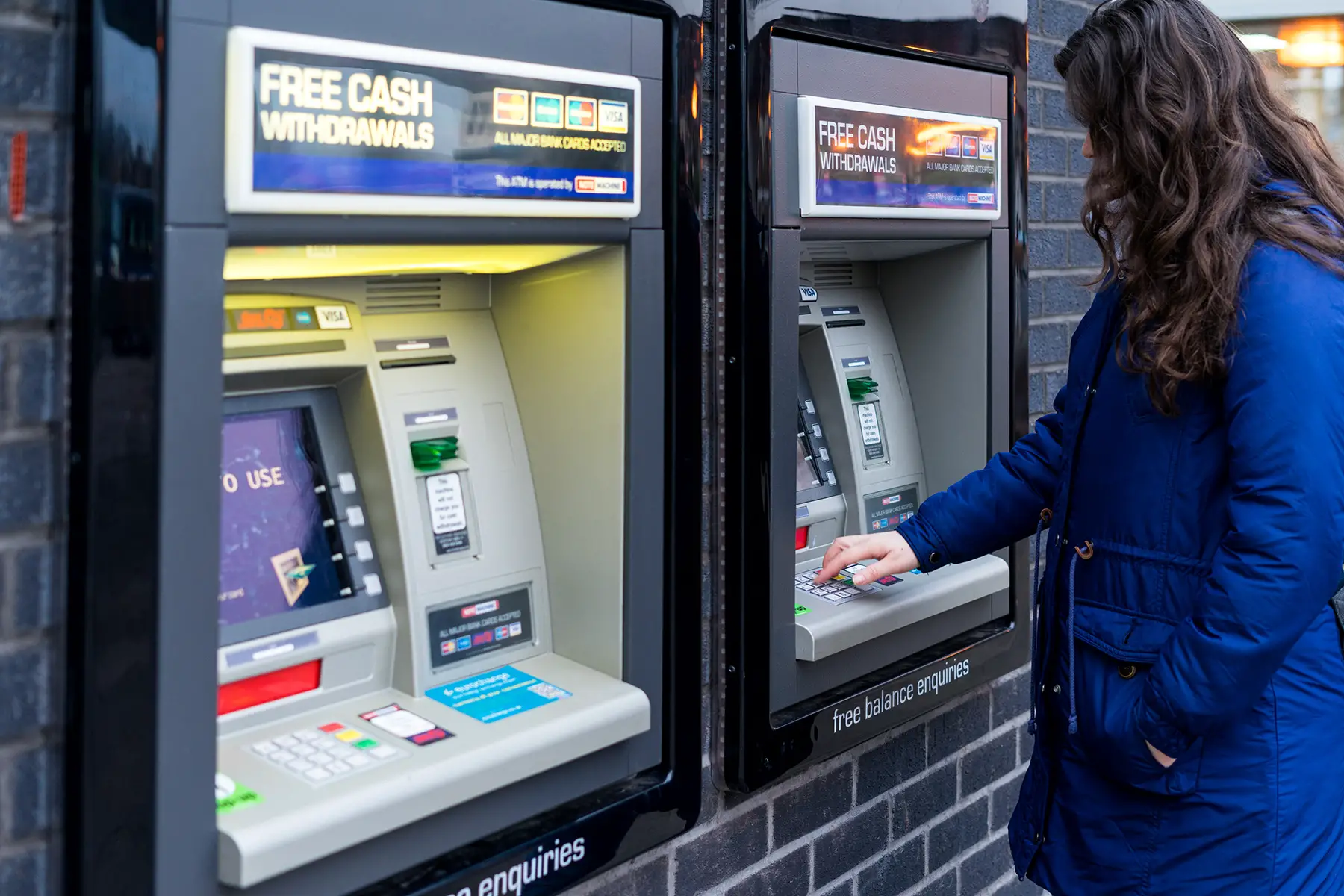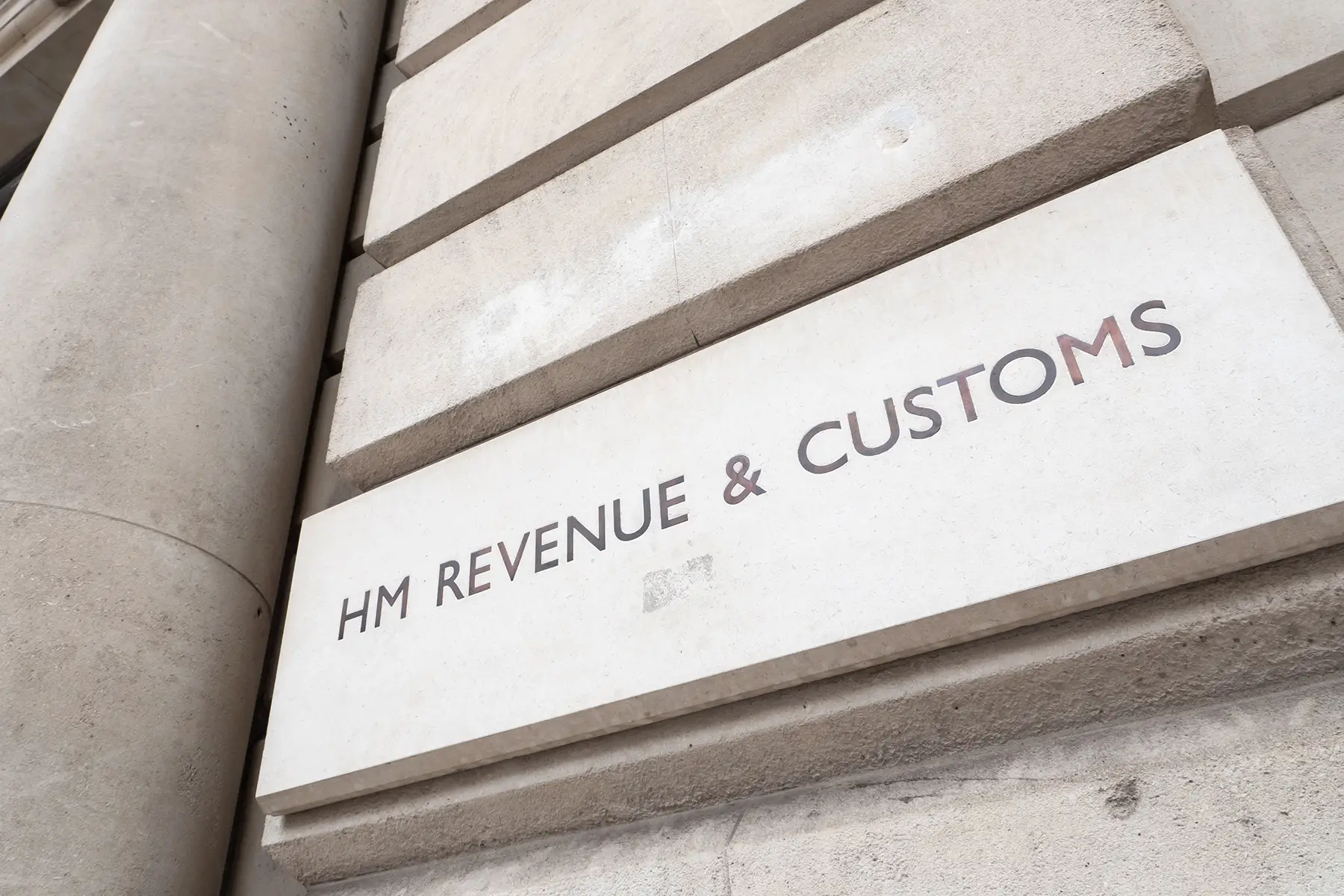You can invest in the UK in a number of ways, from opening up a high interest savings account to buying stocks and shares or purchasing property. The country has long been a global financial hub and there are opportunities for both residents and those overseas looking to invest money. However, markets can be volatile and you can lose money as well as make it. You’ll need to do your research to be aware of pitfalls, rules and tax implications on UK investments.
- Investments in the UK: overview
- How to get good investment advice in the UK
- UK savings account investments
- Investing in your pension in the United Kingdom
- Property investments in the UK
- UK business investments
- Investment funds in the United Kingdom
- Investing in stocks and shares
- Offshore investments
- Can you invest in cryptocurrencies in the UK?
- Investing in precious metals
- Ethical and sustainable UK investments
- UK tax on investments
- How to invest wisely
- Useful resources
Direct Bullion
Protect your wealth with Direct Bullion, a UK-based precious metals dealer. Their investment options include gold bars, gold coins, and silver. With a wealth of expertise, regular updates, and great service, you can have total confidence that your wealth is safe with Direct Bullion.
Investments in the UK: overview
The UK has a strong investment culture and is home to one of the world’s biggest financial hubs in London. It has the third largest national stock market in the world, after the United States and Japan. Furthermore, investing is a popular activity among the population, with a third of Brits owning stocks or shares of some kind.
There are various ways to invest money in the UK, including savings accounts, stocks, shares, bonds, property, pensions, and cryptocurrencies. For most forms of UK investments, there are no restrictions on non-residents investing money, and those living outside the UK are only subject to taxation on UK source income and gains.

However, the UK economy is currently experiencing difficulties. Having made a quick recovery following COVID-19, growth has now slowed and GDP is predicted to stagnate in 2023 while inflation is due to rise above 10%. The GBP has fallen to its lowest against the USD since decimalization. UK households had a gross savings rate of 15% of their disposable income in 2021, below the EU (26%) and OECD (23%) averages. With low growth and rising living costs, this figure is likely to shrink in the immediate future.
How to get good investment advice in the UK
You can get financial and investment advice at most UK high street banks as well as from a number of independent advisers. They can advise on a range of matters, from which types of UK investments may be most suited to your needs, to what the tax situation is for different investment forms.
Fees for investment advice in the UK very much depend on the type of advice you get and for how long. Some advisers charge set fees, others may work on an hourly rate, while some charge a percentage of the investment amount. Hourly rates can be anywhere from £75 to £350 an hour. It’s well worth looking around to see what is available. You may also want to consider whether you want a face-to-face appointment, telephone/video call advice, or something in writing.
You can search for a financial adviser through various internet search tools. These include:
You can also check the Financial Services Register to make sure that the adviser meets the Financial Conduct Authority (FCA) regulation and approval.
If you’re just looking for information and advice on the internet to guide you, two useful websites are Money Helper, which is a free advice service set up by the Department for Work and Pensions (DWP), and MoneySavingExpert.
UK savings account investments
Savings accounts are an easy, popular, and low-risk way of investing money in the UK. However, the financial return on them is typically lower than most other forms of investment. You can open up a savings account with most UK banks or building societies. Some have residency requirements, but others allow non-residents to set up an account.
The way that you earn money on a savings account is through the interest, which is usually tax-free up to a maximum amount. Basic-rate taxpayers in the UK can earn up to £1,000 a year interest tax-free. There are different types of UK savings account, including:
- Easy access account – this is a basic savings account and, as the name suggests, you can withdraw money at any time without penalties, although there may be daily or monthly limits. Interest rates are usually variable and linked to the national Bank of England rate.
- Fixed-rate accounts – these offer set interest rates over fixed periods (typically between 1-5 years) that are typically higher than easy access rates, but you can’t access money during these periods even if national interest rates suddenly increase.
- Regular saver account – similar to fixed-rate accounts, but usually with conditions that you make regular monthly deposits.
- Notice savings account – similar to easy access accounts but you need to give notice if you want to withdraw funds (e.g., 30 days or 60 days). Interest rates are usually variable but slightly higher than for easy access accounts.
- Individual savings account (ISA) – accounts where you can save large amounts, currently up to £20,000 per tax year, without paying tax on interest. Interest rates can be fixed or variable, and there are different types of ISA account including cash, stock, and lifetime savings.
- Savings bond – an alternative to opening an account, where you lock money away for a long period.
Investing in your pension in the United Kingdom
Like many European countries, the UK has a three-pillar pension system. This consists of a state pension paid when individuals reach retirement age. Eligibility is a minimum of 10 years of employment contributions.

In addition to this, there are workplace pensions, where both employers and employees contribute through schemes linked to the employer. Although employers now have to contribute towards workplace pensions, employees can choose to opt-out if they wish. There are two types of workplace pensions in the UK:
- Defined benefit pensions, where the worker receives a specified pension amount
- Defined contribution pensions, where the income depends on how much is paid in and how the investments have performed
The third pillar is private pensions, which are optional pensions that can be used to top up other pensions, or as an alternative for those not entitled to state or workplace pensions. Various financial providers offer different types of private pensions. Unlike the state pension, you can access private UK pensions before you reach retirement age.
The Lifetime ISA is sometimes referred to as another pension strand in the UK, or as an alternative to traditional pension arrangements. You can pay up to £4,000 per year into a Lifetime ISA from the age of 18 until you reach 50. The government will add 25% to this amount, up to a maximum of £1,000 a year. You can withdraw from your Lifetime ISA once you reach 60 years of age.
Property investments in the UK
The UK property market has been growing in recent years. House prices have risen by 15.5% over 2021-22, and the average price in the UK stood at £292,118 in July 2022. This makes buying a UK property an attractive investment option for those with the money to do so.
There are a number of investment options when it comes to UK property. These include:
- Buy-to-let – buying a property with the intention of renting it out. You can check average rental yields in the UK and calculate how much you might make. However, doing this means that you will have certain landlord responsibilities and may also have to pay tax and National Insurance (NI) contributions on rental income over a certain amount.
- Selling a property – while markets are booming, you can look to make money through buying and then selling quickly at a profit, although this is risky and you may only make a small margin if you sell too soon.
- Property development – buying a cheap property that needs work and then renovating to sell at a profit. You will need to look at renovation costs against likely profits if you sell.
- Buying a new-build off-plan – you can sometimes buy new-builds from developers at a cheaper price before they are completed, and then sell them at a profit once they are ready.
- Investing in a Real Estate Investment Trust (REIT) – this is a property investment company where you can buy shares. REITs deal mostly with rental properties and pay 90% of profits to investors in return for tax benefits.
There are no restrictions to expats buying property in the UK, even for buy-to-let. However, it is often harder to get a UK mortgage if you are a non-resident. You will typically pay a larger deposit, and some lenders also attach additional conditions.
You will also have to bear in mind the costs involved in buying property in the UK, as well as the tax implications on income or gains. Discuss plans with a financial expert before committing to any purchase.
UK business investments
The UK ranks 8th globally according to the latest Doing Business survey (2020) with an overall score of 94.6 out of 100. It scores highly in areas such as business taxes and cross-border trading, but not so well in areas such as enforcing contracts and getting credit.
There is a diverse business culture in the UK, with large numbers of multinational corporations, small and medium enterprises (SME), and a growing number of startups and micro businesses. Opportunities for business investment in the UK include investing as a partner in a private limited company, buying shares in a public limited company (PLC), or starting your own business.
Foreigners can invest in or set up a business in the UK. However, you will need a business visa to come to the UK and start your own business. Currently, this means meeting requirements in terms of having an innovative business idea or gaining recognition as an entrepreneur.
Investment funds in the United Kingdom
Investment funds are a form of collective investment where you pool your money with other investors to buy a portfolio of assets. Funds consist of a diverse range of assets that can include shares, property, bonds, currencies, and even natural resources. This is different from investing in a single product, for example, a property or shares in a company.
You can make money from investment funds through either dividends (profit share payouts) or capital growth (increase in fund value). There are various different types of UK investment funds, with the main ones including:
- Active funds – this includes unit trusts and open-ended investment companies (OEIC) which are managed by professional investment managers. These are typically lower risk as they are professionally managed, but they involve higher fees.
- Index/tracker funds – these are passive funds as they simply track the stock market index and don’t involve a professional fund manager, meaning that they are generally cheaper.
- Exchange-traded funds (ETF) – funds listed on the stock exchange, so you can buy or sell them whenever the exchange is open. They are a flexible form of fund trading and can be actively or passively managed.
Funds are generally a lower-risk form of investment than buying individual shares, as you have a more diverse portfolio of investments; plus many are professionally managed. However, you need to account for fees such as management fees, trading fees, exit/selling fees, and platform fees (if you use an online funding platform).
You can check out guides on websites such as MoneySavingExpert and Which? for detailed information such as how and where to invest in UK-based funds.
Investing in stocks and shares
Stocks and shares are stakes that you own in a company. You can buy and sell them on the stock market, and they can earn or lose you money depending on company performance. In the UK, you can buy shares in public limited companies (PLC). These can potentially earn you money either through dividends or capital growth, similar to investment funds. Shares are riskier than investment funds as there is no professional fund manager involvement, diversification, or risk-pooling. However, there are fewer costs. In other words, shares can be a good way of investing money… if you know what you are doing.

Company shares in the UK are listed on the national stock exchange. The London Stock Exchange (LSE) is the main exchange, although the LSE Alternative Investment Market (AIM) is a good one for smaller companies. The main pricing index in the UK is the Financial Times Stock Exchange (FTSE) 100 index. You can buy and sell shares in the UK in different ways including:
- Online platforms – these include services that have made share trading much easier in recent years, although check the fees. You can find information on investment platforms on websites such as Which? and MoneySavingExpert.
- Stocks and Shares ISAs – these are an alternative form of ISA to Cash ISAs, where you can save up to £20,000 worth of shares tax-free. You can also mix and match, where your ISA consists of both cash and shares.
The amount you can make – or lose – through trading in shares can fluctuate as it all depends on company value, which can skyrocket as well as plummet within a short period. Again, it’s worth seeking professional advice. You can also read this article from Which? for more information on direct shares investment in the UK.
Offshore investments
You can invest money in an offshore UK bank account if you are based overseas. Offshore accounts typically offer favorable tax arrangements as well as other advantages.
A number of high street and investment banks in the UK offer offshore accounts in a range of currencies including GBP, USD, and EUR. They usually require larger deposits than standard accounts, but can be a good way of investing money due to higher interest rates.
Can you invest in cryptocurrencies in the UK?
One modern form of investment that has taken off in recent years is cryptocurrency. This is an alternative form of digital finance that operates in a similar way to traditional currency, but it’s not controlled by any central bank or authority. Furthermore, you don’t need a bank account to trade in cryptocurrency.
Just over 6% of the UK population uses cryptocurrencies according to 2022 statistics, below the global average of 15.5%. Because their value varies similarly to standard currency forms, cryptocurrencies have also become a popular investment product. There are over 8,000 cryptocurrencies in circulation globally, with Bitcoin and Ethereum being among the most popular.

You can invest in cryptocurrencies in the UK on exchange websites such as eToro and Coinbase. All you need to do is set up an account and provide a valid ID. You can then store funds in crypto wallets where you can trade with them online or keep them as an investment. As with other types of investment, it makes sense to diversify your crypto stock to protect yourself in the event of one cryptocurrency crashing.
Cryptocurrency firms should register with the UK Financial Conduct Authority (FCA), so check this before using any investment platform to ensure that everything is properly regulated. Bear in mind that you will be liable for capital gains tax on sales profits from any stock, the same as you would be for most other investment forms.
Investing in precious metals
Precious metals are a popular investment in the UK, and in 2023, a quarter of investors planned to invest in it. It can be a safe option to protect wealth during volatile markets.
Those wishing to invest in precious metals, such as gold or silver, have a couple of options. You can invest in a fund or shares or buy the physical material, usually in bars or coins. These are available from the British Royal Mint or through third parties, like Direct Bullion, who offer insured delivery, advice, and regular updates on investments.
Ethical and sustainable UK investments
The UK has made some movement towards ethical and sustainable investing in recent years. It is a member nation of the Global Steering Group on Impact Investing (GSG) and ranked 15th globally for climate bond investment in 2017. Although attempts to create a Social Stock Exchange haven’t taken off, the government created the Impact Investing Institute in 2019 to grow impact investment in the UK in line with commitments to reach UN Sustainable Development Goals (SDG).
The demand for sustainable investment among consumers is growing. Research has found that 57% of UK pension investors want their funds to be sustainable and reflect their values. National Savings and Investments (NS&I) launched Green Savings Bonds in 2021 for those interested in environmentally-friendly saving. There are also a number of other green savings options in the UK.
If you are interested in finding an ethical UK investment fund, you can check the current ethical fund rankings or read the Unbiased guide to ethical funds. Which? has produced a more general guide on ethical investing. You can also use tools such as Ethex and Wealthify to help you find ethical investments in the UK.
UK tax on investments
You may need to pay UK tax on any income earned from your investments in the UK. This can include:
- Income tax, for example on rental income
- Capital gains tax on profits made from sales
- Property tax (known as stamp duty) when you buy UK property
- Dividend tax on shares
- Corporation tax on business profits
However, some investment income is tax-free and there are also allowances on many forms of income where you can earn up to a certain amount without owing tax. If you are not a UK resident, you will only pay tax on UK income and profits. It’s a good idea to speak to a tax advisor who can help you plan your investments and inform you of what allowances and credits are available.
How to invest wisely
Investing money can be a risky pastime where you can lose as well as gain. There is no surefire way of investing successfully, so you’ll need to do your research. Key basic tips include:
- Don’t invest more than you can afford to lose, even if you think you’re onto a definite winning thing
- Start off on lower-risk platforms such as opening up an ISA or an investment fund
- Diversify your investments rather than putting everything in one pot
If you’re new to the game, get advice from either a professional expert or someone with investment experience. You can also read tips on investing as a hobby or some of the many guides on the internet such as this one on investing for beginners.
Useful resources
- Financial Services Register – list of regulated companies and individuals providing financial products and advice in the UK
- Money Helper – free government-funded help and advice on various financial issues
- MoneySavingExpert – useful website with advice and tips on how to save and make money in the UK
- London Stock Exchange – the main stock exchange in the UK










